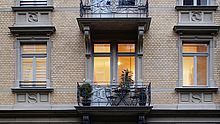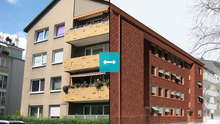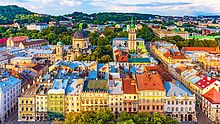Buildings account for around 35 percent of total energy consumption in Germany. In total, Germans spend roughly 73 billion euros on heating rooms, hot water, lighting and air conditioning in residential and non-residential buildings. Residential buildings are responsible for the lion’s share of energy consumption: 39 percent of all energy consumed in Germany is used in detached and semi-detached homes, while apartment buildings contribute another 24 percent. The remaining 37 percent of total energy consumption is for non-residential buildings.
Buildings offer significant energy-saving potential.
There is significant potential for saving energy in the building sector. Around 63 percent of residential buildings were constructed before the First Thermal Insulation Ordinance was introduced in 1979. In consequence, older houses offer the greatest efficiency potential: they consume up to five times as much energy as new builds erected after 2001, with an average annual energy consumption of approximately 85 kilowatt hours per square metre (kWh/m²a).
Buildings must become more energy-efficient
As part of its ambitious energy efficiency targets, the Federal Government has decided to implement a 20 percent reduction in heating requirements by 2020. By 2050, primary energy requirements are to be reduced by 80%, which would make the portfolio of existing buildings largely climate neutral. For this to happen, it is imperative to double the rate of energy-efficient building refurbishments from currently one to at least two percent.
dena is driving the energy transition
dena is committed to ensuring that the energy transition progresses in the building sector as well. To do so, it initiates pilot projects that confirm the practical utility of energy efficiency measures and advocates improving the quality of planning, implementation and monitoring of the individual measures. dena also develops and manages communication platforms and strategies, as well as political initiatives and events. Acting on the interface between politics and industry, dena is actively engaged in the promotion of greater energy efficiency on the national and international stage.








